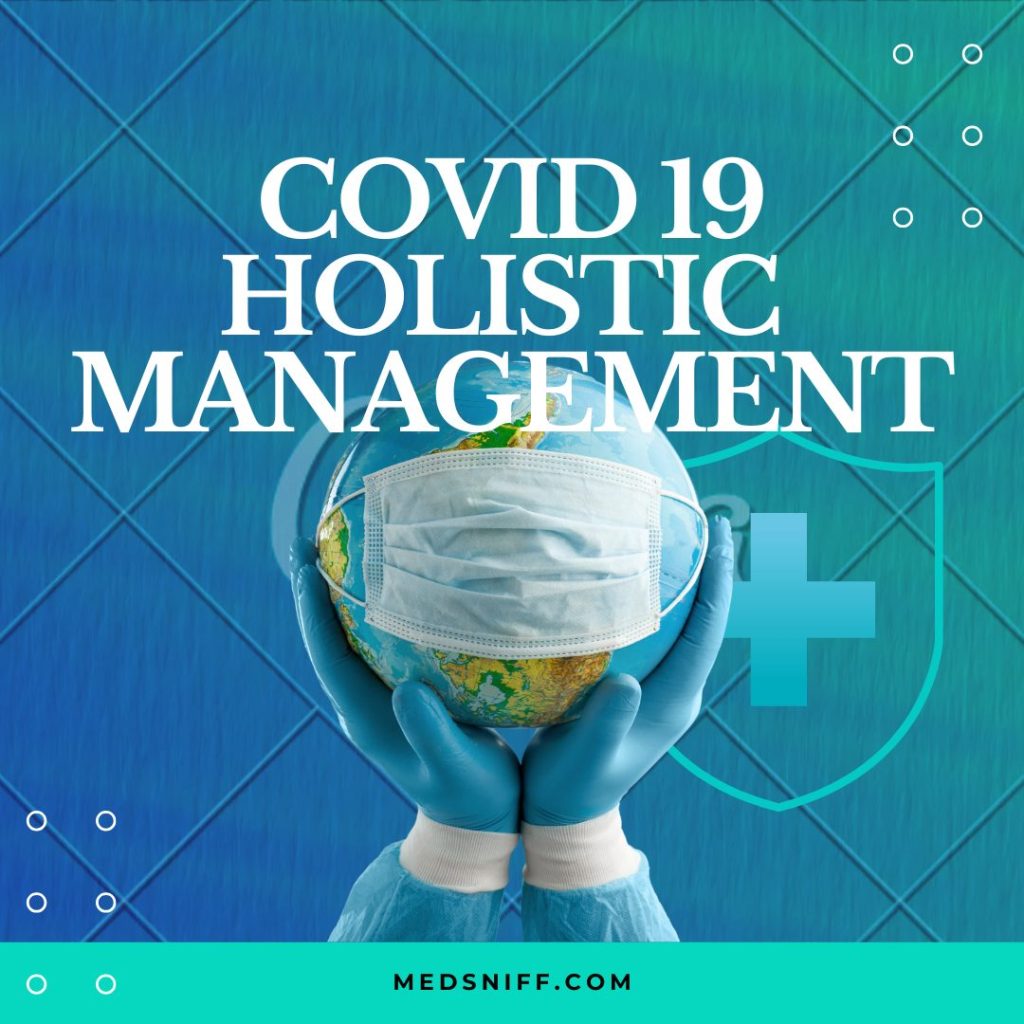
Learn about common COVID-19 symptoms and discover holistic approaches to manage them effectively. Explore natural remedies, stress relief techniques, and essential self-care tips to support your recovery and well-being during illness.
As the COVID-19 pandemic continues to affect lives globally, it’s essential to recognize the symptoms associated with the virus and understand effective management strategies. While many people recover from COVID-19 within a few weeks, a holistic approach to care can enhance recovery and overall well-being. This blog provides an overview of COVID-19 symptoms and offers natural remedies and practices to support your health during this time.
One of my scariest moments was being pregnant with triplets and discovering I had COVID-19 just days before giving birth. This experience underscored the importance of understanding the virus and managing its symptoms.
Common Symptoms of COVID-19
COVID-19 symptoms can vary widely, but common signs include:
- High Fever or Chills: A high temperature means you feel hot to touch on your chest or back, even if you don’t measure it.
- New, Persistent Cough: Coughing frequently for more than an hour or experiencing three or more coughing episodes within 24 hours.
- Loss or Change in Taste or Smell: An abrupt alteration in your sensory perception.
- Shortness of Breath: Difficulty breathing or feeling winded.
- Fatigue or Exhaustion: Unusual tiredness that affects daily activities.
- Body Aches: General discomfort and muscle soreness.
- Headache: Persistent or severe headaches.
- Sore Throat: Pain or irritation in the throat.
- Blocked or Runny Nose: Nasal congestion or discharge.
- Loss of Appetite: Decreased desire to eat.
- Diarrhea: Frequent loose or watery stools.
- Nausea or Vomiting: Feelings of sickness or actual vomiting.
These symptoms can overlap with those of other illnesses, such as the common cold or flu. While most individuals recover within a few weeks, some may experience prolonged symptoms, known as “long COVID.”
What to Do If You Experience Symptoms
If you or a child exhibit symptoms of COVID-19, it’s advisable to stay at home and limit contact with others, particularly if you have:
- A high temperature
- General malaise that prevents you from engaging in daily activities, work, or school
You can resume normal activities once you feel better and are no longer running a high temperature.
If a child has mild symptoms such as a runny nose or sore throat but feels fine, they may continue attending school or childcare.
If You Test Positive for COVID-19
If you choose to take a COVID-19 test and receive a positive result:
- For Individuals Under 18: Stay at home and minimize contact with others for 3 days.
- For Individuals Aged 18 and Over: Isolate for 5 days after testing positive.
- Avoid Contact with Vulnerable Populations: Protect those at higher risk for 10 days after testing positive.
Holistic Approaches to Managing COVID-19 Symptoms
While it’s crucial to monitor symptoms, several holistic practices can help ease discomfort and promote recovery:
- Prioritise Rest: Give your body the chance to heal by getting plenty of sleep and relaxation. Rest is essential for recovery from any illness.
- Stay Hydrated: Drink ample fluids to prevent dehydration. Herbal teas and broths are excellent choices. Aim for light yellow or clear urine as an indicator of proper hydration.
- Natural Remedies: Consider honey and lemon drinks, which can soothe a sore throat and alleviate cough. Just remember not to give honey to babies under 12 months.
- Breathe Deeply: Practice slow, deep breathing to ease feelings of breathlessness. Inhale gently through your nose and exhale through your mouth, as if blowing out a candle.
- Meditation and Mindfulness: Engage in meditation or mindfulness practices to relieve stress and anxiety. These practices can help calm the mind and promote emotional well-being during uncertain times.
- Gentle Movement: If you feel up to it, light stretching or gentle yoga can help maintain mobility and alleviate tension in the body.
When to Seek Medical Help
If your symptoms worsen or you are concerned about your health, it’s essential to seek medical advice. Contact your GP or reach out to NHS 111 if:
- You or your child’s symptoms are worsening or not improving.
- There are additional signs of illness, such as a rash or significant loss of appetite.
- You or your child have a high temperature lasting 5 days or more, or if it does not respond to paracetamol.
- A child under 3 months has a temperature of 38°C or higher.
Urgent Help: Call 999 or go to A&E if you or a child experience:
- Severe chest pain
- Extreme breathlessness or difficulty speaking in full sentences
- Coughing up blood
- Sudden onset of confusion or seizures
- A rash that does not fade when pressure is applied (indicative of meningitis)
Conclusion
Understanding COVID-19 symptoms and knowing how to manage them is vital for recovery. By incorporating holistic practices such as rest, hydration, natural remedies, and mindfulness, you can support your body’s healing process. Remember, while most individuals recover from COVID-19, it’s essential to monitor symptoms and seek medical advice when necessary. Stay safe, be kind to yourself, and prioritize your health during these challenging times.
Disclaimer
The information provided in this blog is for educational and informational purposes only and should not be considered medical advice. While the benefits of holistic practices for managing COVID-19 symptoms are discussed, individual health needs may vary. It is essential to consult with a healthcare professional if you have concerns about your health or symptoms. This blog reflects personal experiences and perspectives, including my own challenges during pregnancy with triplets while dealing with COVID-19, and may not apply universally. Always seek personalised advice from qualified health professionals regarding your dietary choices and health concerns.


